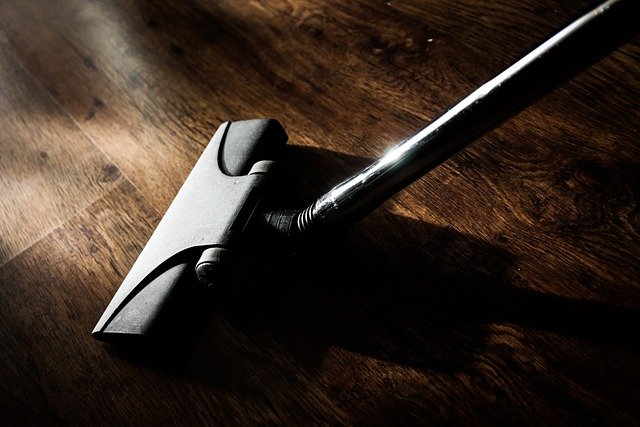What People Discover When Comparing Professional Cleaning Services for Their Home
Professional cleaning services have become a significant consideration for many households seeking consistency, hygiene, and a more structured approach to home care. The differences between companies, however, extend far beyond simple checklists. People often explore how services are organized, what standards professionals follow, and why certain methods deliver more predictable outcomes. Understanding these aspects helps reveal what truly shapes the effectiveness of a cleaning service and why the gap between providers can be wider than it seems at first glance.

When homeowners begin researching professional cleaning services, they often expect a straightforward process. However, the reality involves evaluating numerous variables that directly impact service quality, cost, and overall satisfaction. From scheduling flexibility to the training protocols companies follow, each element plays a role in determining which provider best suits individual household needs.
How Professional Cleaning Services Differ
Not all cleaning companies operate the same way. Some focus exclusively on residential properties, while others split their attention between commercial and home clients. The scope of services varies significantly—basic packages might include dusting, vacuuming, and bathroom sanitation, whereas comprehensive plans incorporate window washing, appliance cleaning, and organizational tasks. Specialty services such as deep cleaning, move-in/move-out preparation, or post-construction cleanup often come at premium rates. Company size also matters. Large franchises typically offer standardized procedures and established quality controls, while independent operators may provide more personalized attention and flexible scheduling. Homeowners discover that insurance coverage, background checks for staff, and the use of eco-friendly products are additional distinguishing factors worth investigating before making commitments.
What Influences Cleaning Service Quality
Several interconnected factors determine the quality homeowners receive. Staff training stands as a primary influence—companies investing in ongoing education for their cleaners tend to deliver more consistent results. The products and equipment used also matter; professional-grade tools and solutions often outperform consumer-level alternatives. Communication systems play an underrated role. Services that provide clear channels for feedback, allow customization requests, and maintain detailed cleaning checklists generally achieve higher customer satisfaction. Quality control measures such as supervisory inspections or satisfaction guarantees indicate a company’s commitment to maintaining standards. Additionally, employee retention rates offer insight—high turnover may signal workplace issues that eventually affect service consistency.
How Companies Structure Home Cleaning Routines
Cleaning companies approach home routines with varying methodologies. Many follow room-by-room systems, completing all tasks in one area before moving to the next. Others prioritize task-based approaches, handling all dusting throughout the home before switching to vacuuming or mopping. Time-based models allocate specific durations per visit, completing as much as possible within the agreed timeframe. Checklist-driven services ensure every listed task receives attention during each session. Some providers rotate deep-cleaning tasks across visits—baseboards one week, light fixtures the next—while maintaining core cleaning duties consistently. Homeowners comparing services notice differences in how companies handle special requests, whether they bring their own supplies, and how they manage access to properties when clients are away.
Factors Homeowners Consider When Comparing Services
Practical considerations guide most comparison processes. Scheduling flexibility ranks highly—can the company accommodate specific days or times, and how much advance notice do changes require? Pricing transparency matters significantly; hidden fees or unclear billing practices create frustration. Homeowners evaluate whether services charge flat rates, hourly fees, or customized quotes based on home size and condition. Contract terms deserve attention—some companies require long-term commitments, while others offer pay-as-you-go arrangements. Trustworthiness indicators such as bonding, insurance, and verifiable references provide peace of mind. Geographic service areas, minimum service requirements, and cancellation policies also influence decisions. Many people prioritize companies with positive online reviews, though they learn to distinguish genuine feedback from potentially manipulated ratings.
| Service Type | Typical Provider Examples | Cost Estimation |
|---|---|---|
| Basic Recurring Cleaning | Local independent cleaners, regional companies | $80–$150 per visit |
| Standard Deep Cleaning | Franchise services, established local businesses | $200–$400 per session |
| Specialty Cleaning | Niche providers, full-service companies | $150–$500+ depending on scope |
| Eco-Friendly Services | Green-certified companies, boutique providers | $100–$200 per visit |
Prices, rates, or cost estimates mentioned in this article are based on the latest available information but may change over time. Independent research is advised before making financial decisions.
Understanding Service Agreements and Expectations
Successful client-provider relationships depend on clear agreements. Written contracts should specify exactly which tasks are included, how long visits typically last, and what falls outside standard service scope. Homeowners discover the importance of discussing expectations upfront—whether they prefer the same cleaner each visit, how to handle breakage or damage, and what happens if results fall short of promises. Payment terms, tipping policies, and procedures for addressing concerns all warrant clarification before services begin. Understanding these elements prevents misunderstandings and creates frameworks for resolving issues if they arise.
Making Informed Decisions About Home Cleaning Services
The comparison process ultimately equips homeowners with knowledge to make confident choices. Beyond cost considerations, factors like company reputation, service customization, and alignment with personal values guide final decisions. Some prioritize supporting small local businesses, while others prefer the perceived reliability of established brands. Environmental concerns lead certain households toward green cleaning options despite potentially higher costs. Trial periods or one-time cleanings allow people to evaluate quality before committing to regular schedules. Recognizing that the cheapest option rarely delivers the best value, informed consumers balance affordability with quality indicators, creating arrangements that genuinely improve their home environments and daily lives.




